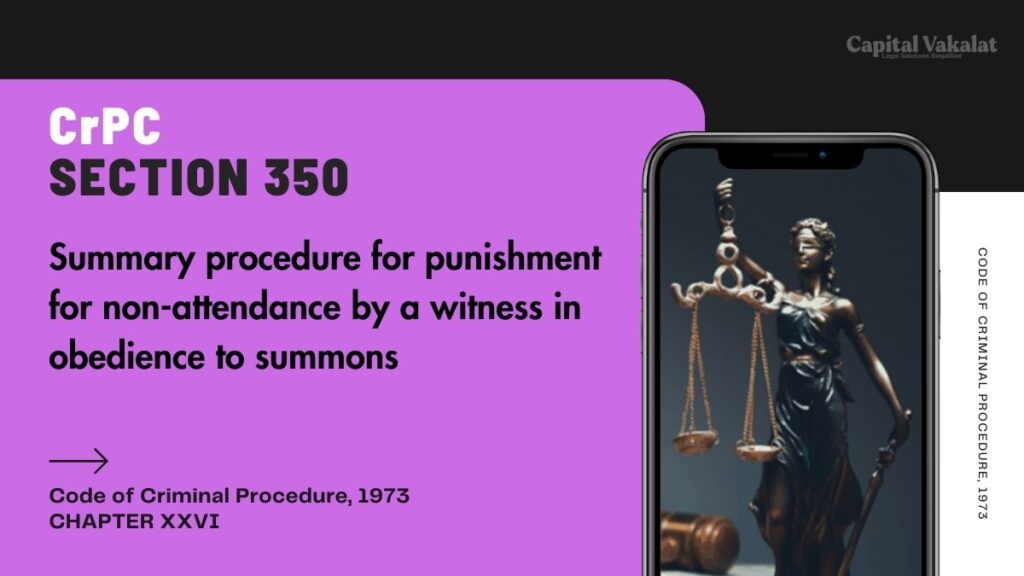Section 350 of the Code of Criminal Procedure (CrPC) in India provides a streamlined process for penalizing witnesses who fail to attend court despite being summoned. This legislation aims to uphold the integrity of the judicial process by ensuring that witnesses fulfill their obligations.

Non-attendance by a witness can significantly hinder the judicial process, leading to delays and the potential miscarriage of justice.
Understanding Section 350 CrPC
Section 350 CrPC lays out a clear, summary procedure for dealing with witnesses who do not attend court in response to a summons. This section empowers magistrates to impose penalties, thereby encouraging compliance and deterring negligence. The procedure under Section 350 CrPC is designed to be swift and effective, ensuring that the wheels of justice are not stalled by non-compliance.
The Importance of Witness Compliance
Witnesses play a crucial role in the judicial system. Their testimonies can be pivotal in determining the outcome of a case. Non-attendance by witnesses can lead to incomplete or skewed judicial proceedings, undermining the fairness of the trial. Section 350 CrPC aims to mitigate this issue by providing magistrates with the authority to enforce attendance through punitive measures.
Detailed Procedure Under Section 350 CrPC
The procedure under Section 350 CrPC is straightforward. When a witness fails to attend court despite a lawful summons, the court may conduct a summary inquiry. If the court finds no sufficient cause for the witness’s absence, it can impose a fine. The maximum fine is specified to ensure proportionality and fairness. This summary procedure ensures that the process is swift, avoiding prolonged delays that could further disrupt judicial proceedings.
Legal Framework and Judicial Interpretations
The legal framework of Section 350 CrPC is supported by various judicial interpretations that clarify its scope and application. Courts have consistently upheld the importance of this provision in maintaining the efficacy of the judicial process. Notable cases have reinforced the idea that witness attendance is not merely a procedural formality but a fundamental aspect of ensuring justice.
Challenges and Practical Considerations
While Section 350 CrPC provides a mechanism to enforce witness attendance, practical challenges remain. Ensuring that witnesses understand their obligations and the consequences of non-attendance is critical. Additionally, the enforcement of fines must be handled judiciously to avoid undue hardship on witnesses. Courts must balance the need for compliance with the principles of fairness and justice.
Section 350 CrPC: A Case Study
To illustrate the application of Section 350 CrPC, consider a case where a key witness repeatedly failed to attend court hearings despite multiple summonses. The magistrate, following the procedure under Section 350 CrPC, conducted a summary inquiry and found no valid reason for the witness’s absence. Consequently, a fine was imposed. This action not only penalized the witness but also sent a clear message about the importance of complying with court orders.
Impact on the Judicial System
The enforcement of Section 350 CrPC has a significant impact on the judicial system. By ensuring witness compliance, it helps in the smooth functioning of the courts. This provision acts as a deterrent against non-compliance, thereby enhancing the overall efficiency and reliability of judicial proceedings.
Conclusion
Section 350 CrPC is a crucial provision in the Indian judicial system, designed to ensure the attendance and compliance of witnesses. By providing a summary procedure for punishment, it upholds the integrity of judicial proceedings and deters non-compliance. Despite practical challenges, its effective implementation is essential for the smooth functioning of the courts.